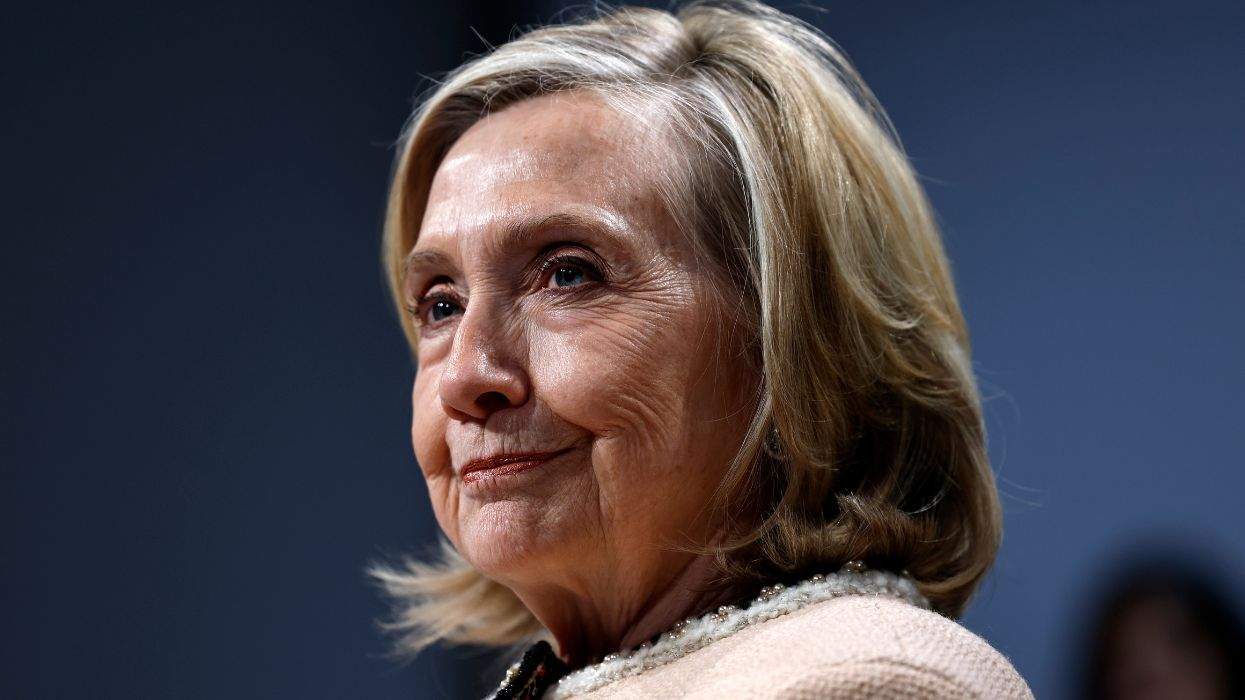A week after the presidential election, the queer community in Mexico remains divided. Many do not know what to make of Andres Manuel Lopez Obrador when it comes to LGBT rights. To his supporters, Lopez Obrador is an ally and a champion. He was the only candidate to hold a rainbow flag during the campaign trail. He was the only candidate to hint that "the rights of all should be recognized and respected." And the first elected president to explicitly say that the state should represent Mexicans of all sexual preferences.
His detractors, however, are more cautious. After all, this is the same person who, only a couple of months ago, suggested that equal marriage, a right that had already been recognized by the Supreme Court of Mexico, should be put up for a referendum. The same Lopez Obrador who, in order to win this election, partnered with the PES, a highly conservative party that is openly and fiercely against LGBT rights. And the same Lopez Obrador who last week suggested that German Martinez Cazares -- a conservative and former leader of the main right-wing party of Mexico -- could be the new director of the Mexican Institute of Social Security.
These mixed signals are not uncommon for Lopez Obrador. When it comes to progressive issues, he is pragmatic. Whether it is LGBT rights, abortion, or the legalization of marijuana, to name a few, he has always steered clear of discussions that may be controversial. With three-fourths of the national population identifying as Catholic and a growing number as Christian or evangelical, he knows better than to make any unnecessary waves.
The electoral process provided no room for advocates to question this pragmatism. Despite the colossal efforts of the Mexican LGBTTTI+ Coalition to heighten the visibility of its communities, queer rights were practically absent all across. The rare exception was when candidates were asked whether they would attend a same-sex wedding if invited, or if they would approve of their son marrying another man. Lopez Obrador was always ambiguous in his answers.
So, what can we expect from Lopez Obrador on LGBT issues? The answer, sadly, is not much. He is likely to continue navigating in those gray areas where he is most comfortable. Perhaps not leading the conservative recoil as has occurred elsewhere in Latin America, but also not championing gender identity recognition, intersex rights, or the fight against discrimination.
The truth, however, is that queer advocacy may not need Lopez Obrador to play a prominent role in order to make significant progress. In fact, they might even be better off without him, at least at a public level. If LGBT advocates have learned anything over the past two years, it is that every time that sexual orientation and gender identity reach the front page, the backlash hits hard. When incumbent President Enrique Pena Nieto opened the doors of Los Pinos -- his official residence -- to LGBTI organizations two years ago, announcing that he would send a bill to Congress to recognize marriage equality across the nation, hundreds of thousands organized within a few weeks and rallied against him. A month later, Pena Nieto's party lost eight out of nine local elections, and six months later, his own legislators used Donald Trump's victory as a diversion to silently scrap the bill.
LGBT activists should rather seek alternative playing fields. An example is local legislative reform, where major improvements could be made. Lopez Obrador's party, Morena, will hold the majority of seats in 12 of the 20 states where marriage equality has yet to be recognized under the law. This means that in the next three years, Morena could double the number of states where same-sex couples can get married without having to undergo a long, costly, and unnecessary judicial procedure.
At a policy level, Mexico desperately needs to combat violence and discrimination against the LGBT population, particularly against transgender women, migrants, and sex workers. In that effort, advocates should be ready to reach out to allies within Lopez Obrador's new Cabinet. The newly elected president has proposed Olga Sanchez Cordero, a retired Supreme Court Justice who fiercely defended LGBT rights during her mandate, to become the next secretary of the Interior. And Marcelo Ebrard, the mayor of Mexico City in 2009, when marriage equality was approved, will be his secretary of Foreign Affairs.
Lastly, LGBT activists should be ready to defend progress that was made over the past six years, but that may be hanging by a thread as Pena Nieto leaves office on December 1. Such is the case of self-perceived gender recognition in Mexican passports and identity documents, the inclusion of sexual diversity in public education, the recognition of benefits to same-sex couples in the Social Security system, and Mexico's prominent role in global LGBT forums, including the United Nations LGBT Core Group. All of these are at risk, as they depend on the will and the interest of the president.
LGBT rights will not be a priority for the first left-wing president of Mexico in over four decades. It will be up to advocates to make sure that queer rights do not become a nonissue.
DANIEL BEREZOWSKY is a human rights advocate from Mexico City, focusing on LGBT rights. He has advised and supported the work of Mexican federal government Cabinet members, Human Rights Watch, and the Inter-American Commission of Human Rights. He is currently an adviser at Shift, the leading center of expertise on the U.N. Guiding Principles on Business and Human Rights. Daniel holds a master of international affairs degree from Columbia University, where he was a 2016 HBO Point Scholar.















Charlie Kirk DID say stoning gay people was the 'perfect law' — and these other heinous quotes
These are some of his worst comments about LGBTQ+ people made by Charlie Kirk.